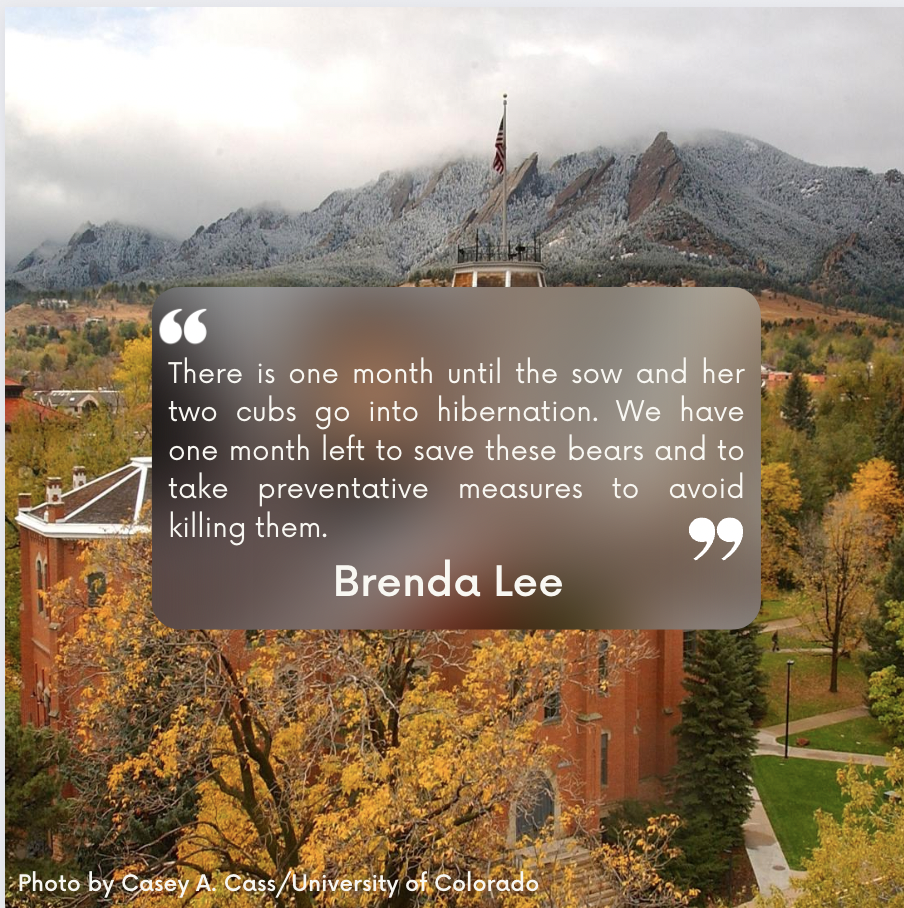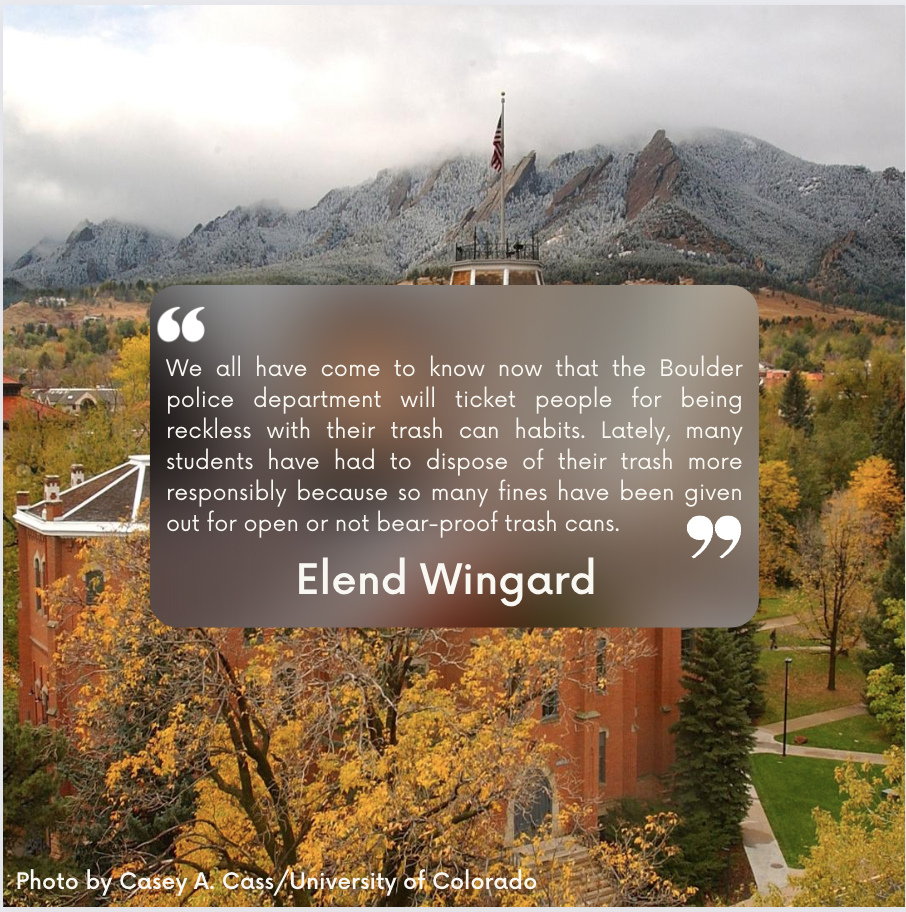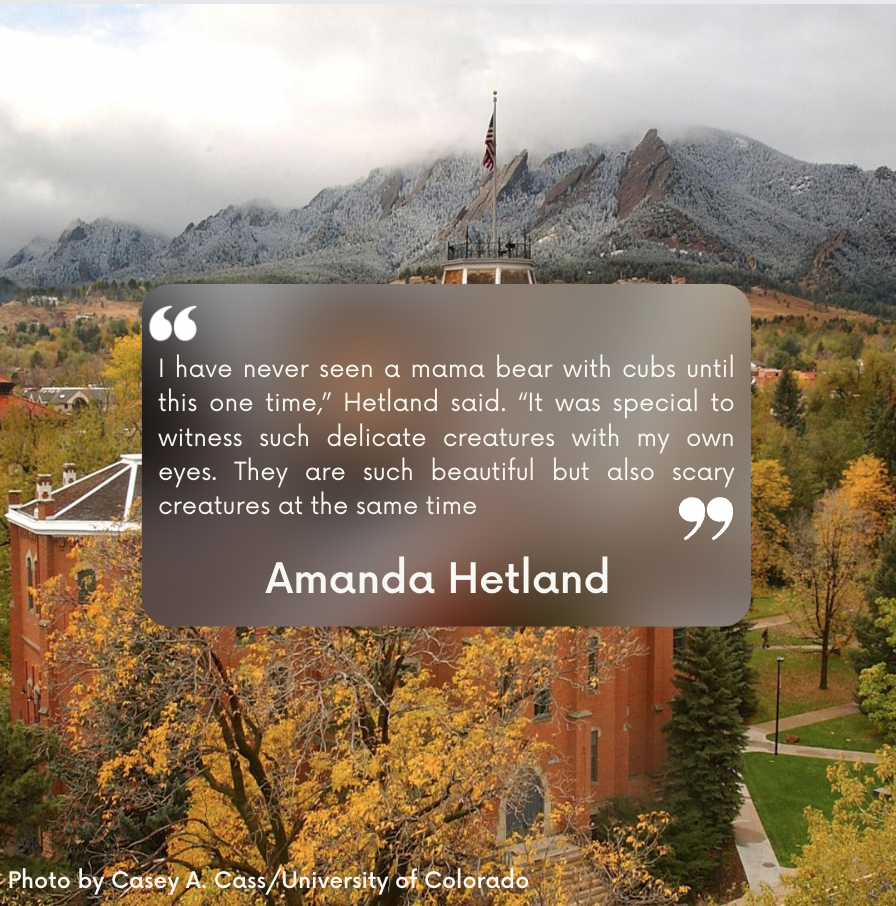The Boulder Bear Coalition and its importance to bear lives
In response to recent complications to bear lives, Brenda Lee founded the Boulder Bear Coalition.

In 2009, Brenda Lee, founder and president of the Boulder Bear Coalition, embarked on a mission to save bear lives in Boulder. According to Lee, the bears can face serious consequences from students’ poor trash management , and by being featured on social media.
“When the bears come into town, they are coming into town because they are hungry. The common reason that the bears come into town is for trash, in the alleys and on the hill in particular,” said Lee.
In areas where there are large groups of college students and residents, the Colorado Parks and Wildlife (CPW) view the bears as ‘nuisances,’ even if the bears are not being aggressive. In most situations in Boulder the mother bear, known as the sow, is also tagged as a ‘nuisance,’ despite being peaceful and nonaggressive; her two cubs are not tagged.
“If the sow and her cubs are seen too often on the hill, and if students are rushing to take and post pictures of them on social media, the officers may choose to kill her,” Lee said. “Even though her cubs are not tagged, they will also be killed as well.”
These nuisance bears have two “strikes” before they are euthanized, as stated by the CPW.
According to Statewide Public Information Officer for CPW, Joey Livingston, “If the bears come back into town where we have to trap them again, that would be their second strike. And at that second strike, they are euthanized at that point.”
A simple social media post could kill the innocent sow and her cubs, demonstrating the urgency to leave the bears alone.
“There is one month until the sow and her two cubs go into hibernation,” Lee said. “We have one month left to save these bears and to take preventative measures to avoid killing them.”

The bears recently spotted in Boulder are black bears who survive on mainly a berry based diet. As they prepare for hibernation, they eat over 20,000 calories a day worth of berries. In this case, the bears smell the trash and come to scavenge for food because they can reach their caloric needs faster and easier with human food.
Normally, the black bears live in the forest and only eat berries; the bears would not be in town if there wasn’t an abundance of available and accessible trash. Especially following the large amounts of trash on the hill after students engage in weekend parties, many fellow Buffs are attracting the bears by being irresponsible with their trash.
“We as an organization work closely with the police to ensure that students who live on the hill are fined if they fail to utilize a bear-proof trash can,” Lee said.
The Boulder Bear Coalition played a large role in enforcing Ordinance No. 7962, which emphasizes bear-proof trash cans as a necessity in the Boulder community. As a result, many students have received fines in response to leaving trash in a trash can that is not bear-proof.
“This is really a human problem, not a bear problem,” Lee said. “We are luring them into town with unsecured food, which is increasing their chances of being killed.”

It is time to take action and realize the steps that the Boulder community can take to save a sow and her two cubs.
First, trash must be secured in a bear proof trash can with the lid completely shut to ensure if the can tips over, trash will not fall out. Second, if encountering the bear and her cubs, do not take a picture and post it on social media. Leave them be and respect their space.
As a community, we have the power to save these bear’s lives if we find the ethics within ourselves to take corrective action.


Fascinating article!
Thank you Emma for writing about such an important topic!